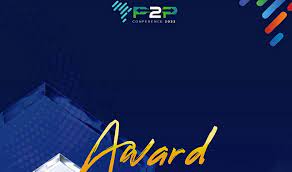The recent release of a whitepaper by Nigeria’s Minister of Communications, Innovation, and Digital Economy, detailing efforts to develop a holistic National Blockchain Policy, has sparked reactions from some industry stakeholders. While the policy aims to provide a structured, inclusive, and forward-looking framework for blockchain adoption, many have expressed concerns about the need for action over rhetoric.
A Case of Déjà Vu?
Tony Emeka, Co-Founder & CEO of CryptoTvplus, questioned the necessity of a new policy initiative, given that a National Blockchain Policy was already released by NITDA two years ago. “Few days ago, Nigeria’s Minister of Communications, Innovation, and Digital Economy released a whitepaper outlining a so-called “holistic” blockchain policy… But here’s the problem: two years ago, NITDA already released a National Blockchain Policy. So what exactly is this new initiative? A rebrand? A reset? Or simply a recycled effort wrapped in new language?” Emeka asked.
Read also: Nigeria Unveils National Blockchain Policy Whitepaper; to Kickstart Research
Time for Execution, Not Just Whitepapers
Emeka emphasized that Nigeria should be executing policies, not just creating them. “Why are we still talking about crafting a blockchain policy in 2025? The CBN, SEC, and NITDA have met with industry players repeatedly over the years. Endless dialogues, strategy sessions, and panels. Yet we remain stuck in “policy creation” mode—when we should be executing,” he said.
A Call for Competence, Not Just Regulation
Emeka stressed that the issue is not about resisting regulation of the industry, but about competence. “This isn’t a rejection of regulation. It’s a call for competence. At this stage, Nigeria should be positioning itself among blockchain leaders. We have the numbers… What we don’t have is coordination, clarity, or bold execution,” he noted.
Industry Stakeholders Weigh In
Other industry stakeholders have echoed Emeka’s sentiments. God’spower Effiong, Web3 Business Development Lead and Product Manager, believes that Emeka’s sentiments rightly capture the state of affairs in the country’s blockchain policy space. “Absolutely spot on Tony Emeka. It’s exhausting watching the same conversations being recycled year after year while other countries are miles ahead in execution.”
Charles Okaformbah, Cloud Engineer and Blockchain Solution and Enterprise Architect, added, “We are supposed to be in the implementation phase and not research except the research is on how best to implement.”
A Need for Action and a Unified Approach, Not Just Policy
Lawal Mukhtar, Assistant Chief Executive Officer of National Orientation Agency (NOA), noted that while the 2023 policy laid a solid foundation, minimal adoption and execution have taken place. “The 2023 policy laid a solid foundation, and the new white paper builds on it. But two years later, we’re still stuck in policy mode, with minimal adoption by MDAs and little execution on the ground,” Mukhtar said.
Kenneth Njeze, Business Developer, emphasized the need for a unified approach. “Tony Emeka, you sound it clear and simple. Many of our leaders still have the mindset of “my initiative is the best to follow” and that is the reason we circumvent issues,” Njeze said.
Read also: Nigeria approves national blockchain policy, but crypto remains in limbo.
A Frustrated Space; a Glimmer of Hope
Olayimika Oyebanji, Crypto Journalist, Researcher, and Blockchain Technology Lawyer, expressed frustration with the regulatory environment. “Nigeria is always stuck with endless regulatory shitshows. The earlier you realize that most of your policymakers at the helm of affairs don’t know sh*t about this space, the better,” Oyebanji said.
However, not all stakeholders are pessimistic. Abubakar Aliu, Entrepreneur, Blockchain Developer, and Mechanical Engineer, sees the Whitepaper as a holistic approach to address the industry’s challenges. “Well, what you said is quite accurate. Top-down policies and poor execution are our problems. However, I see this Whitepaper as a holistic approach to address all the issues you mentioned,” Aliu said.
Read also: A Critique of Nigeria’s Blockchain Policy
The Whitepaper as a roadmap that builds on the National Blockchain Policy
While some industry stakeholders have expressed concerns about the need for action over rhetoric, not everyone shares the same sentiment. David Gitonga, Founder and Creator of BitKE, offers a differing perspective.
“I see a lot of Nigerians complaining but I feel they misunderstand the government’s approach, and quite frankly, how processes work,” Gitonga said. “A National Blockchain Policy precedes an initiative like this one. The policy had to come first before the roadmap initiative is implemented. In fact, the roadmap whitepaper clearly stated that it was guided by the country’s national blockchain policy.”
Gitonga emphasizes the importance of respecting the process, noting that without it, complaints would continue without appreciation for why processes exist. “It’s good we respect the process if we want long-term action and results otherwise we shall continue complaining without appreciating why processes exist,” he added.
Gitonga’s comments highlight the complexity of Nigeria’s blockchain policy landscape and the need for a nuanced understanding of the government’s approach. As the industry continues to evolve, it remains to be seen whether stakeholders will come together to drive meaningful progress.
Moving Forward: A Call for Collaborative Action
Presently, it is unclear whether the National Blockchain Implementation Committee chaired by Chimezie Chuta, Founder of Blockchain Nigeria User Group (BNUG) is involved in the development of the recently released Whitepaper and the plans of the Ministry of Communications, Innovation and Digital Economy.
As the industry awaits concrete actions, stakeholders must work together to make the most out of the opportunity provided by the Whitepaper. Industry stakeholders can best approach this through the following ways:
- Providing constructive feedback on the Whitepaper, highlighting areas of strength and weakness
- Offering practical suggestions for implementation, drawing from their expertise and experience
- Engaging in open and transparent dialogue with the Ministry, ensuring that concerns and ideas are heard
On its part, the Ministry of Communications, Innovation and Digital Economy can also best engage industry stakeholders by considering the following:
- Establishing clear channels of communication, ensuring that stakeholders can provide feedback and suggestions
- Providing regular updates on progress, milestones, and challenges
- Fostering a collaborative environment, where stakeholders can work together to drive implementation and adoption
- Prioritizing action over rhetoric, demonstrating a commitment to tangible results and impact
By working together, Nigeria can harness the potential of blockchain technology, driving economic growth, transparency, and innovation. The question is, will the government and industry stakeholders seize this opportunity to turn policy into tangible action, or will Nigeria continue to lag behind other nations in embracing the benefits of blockchain? The future of Nigeria’s digital economy hangs in the balance, and the time for decisive action is now.
Read also: What is Blockchain Technology? Meaning, Types, and Use Cases
Discover more from Crypto Asset Buyer
Subscribe to get the latest posts sent to your email.





